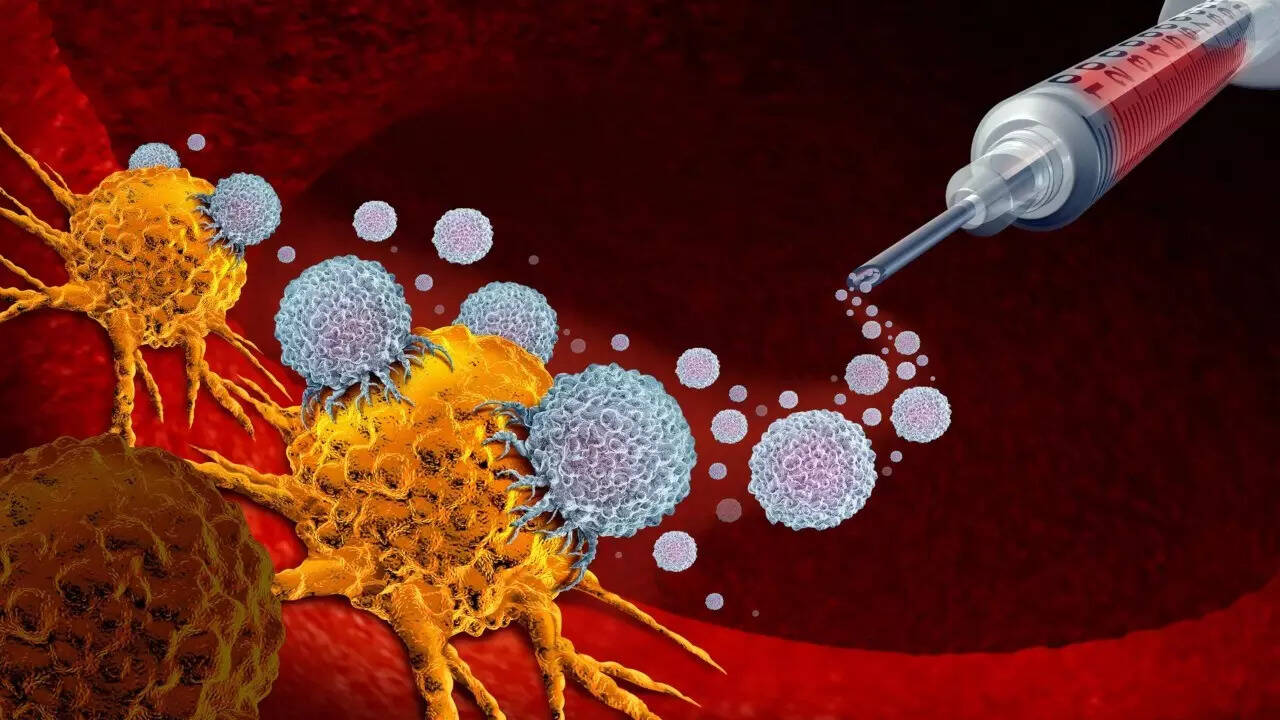ARTICLE AD BOX

What’s one of the most awaited ‘wins’ in the medical periphery? If asked this question, many of us would answer, “a cure for cancer” in a heartbeat. One of the most scarring diseases in today's world, amongst others, cancer is one of the deadliest as well.
In 2025, global cancer statistics are estimated to show a significant burden, with an anticipated rise in new cases and deaths, though some regions may see improvements in mortality rates. In the United States, an estimated 2,041,910 new cancer cases are expected, with 618,120 deaths, according to the American Cancer Society.However, a silver lining has been found in recent research, raising the bar of hope.A potential game-changer in cancer research has emerged from the University of Florida, where scientists have developed an experimental mRNA vaccine that successfully eliminated tumors in mice.
Unlike traditional cancer vaccines that target specific tumor proteins, this approach works by supercharging the body’s immune system, making cancer cells vulnerable to attack. Early results suggest it could work across multiple cancer types and even enhance existing treatments like immunotherapy.
While still in the experimental stage, the discovery offers new hope for what experts are calling a possible “universal cancer vaccine.”
A powerful boost for immunotherapy
Researchers at the University of Florida published the findings in Nature Biomedical Engineering. Their experiments revealed that combining the vaccine with widely used cancer drugs known as immune checkpoint inhibitors created a strong “one-two punch” against tumors.“We achieved these results not by directly attacking a specific tumor protein, but by revving up the immune system itself,” explained lead researcher Elias Sayour, M.D., Ph.D.,
a pediatric oncologist at UF Health, to SciTechDaily. The vaccine worked by encouraging the expression of PD-L1, a protein that made tumors more sensitive to treatment.
An unexpected breakthrough
What makes this approach unusual is that the vaccine did not target any one tumor marker. Instead, it triggered the immune system to react as though it were fighting a viral infection.“This paper describes a very unexpected and exciting observation: that even a vaccine not specific to any particular tumor or virus — so long as it is an mRNA vaccine — could lead to tumor-specific effects,” said Sayour.He believes the discovery could pave the way for “universal cancer vaccines” that train the immune system to attack different types of tumors, offering an alternative to surgery, chemotherapy, and radiation.

A third approach to cancer vaccines
Traditionally, scientists have pursued two strategies in cancer vaccine research:Targeting common proteins expressed in many cancers.Customizing a vaccine to match a patient’s own tumor.But this study suggests a third path.“What we found is by using a vaccine designed not to target cancer specifically but to stimulate a strong immune response, we could elicit a very strong anticancer reaction,” said Duane Mitchell, M.D., Ph.D., co-author of the study. “This has significant potential to be broadly used across cancer patients — even possibly leading us to an off-the-shelf cancer vaccine.”
Building on earlier success
Sayour’s lab has been exploring mRNA cancer vaccines for more than eight years, using lipid nanoparticles similar to those in COVID-19 vaccines.
Last year, they made headlines with a small clinical trial in patients with glioblastoma, an aggressive brain tumor. That personalized vaccine, created from each patient’s tumor cells, quickly reprogrammed the immune system to attack cancer.The new research takes that concept further. Instead of tailoring the vaccine to each tumor, the team tested a generalized version designed simply to jolt the immune system.

Strong results in multiple tumor types
In mouse models of melanoma, combining the vaccine with a PD-1 inhibitor drug led to impressive tumor shrinkage. Even more striking, in models of skin, bone, and brain cancers, a modified vaccine given alone sometimes wiped out tumors entirely.Sayour explained that the vaccine seemed to activate T cells — immune cells that had been dormant — and turn them into effective cancer fighters.
A wake-up call for the immune system
“It could potentially be a universal way of waking up a patient’s own immune response to cancer,” said Mitchell.
“And that would be profound if generalizable to human studies.”The UF team is now working to refine the vaccine’s formulation and hopes to advance into human clinical trials soon. If successful, this approach could transform cancer treatment by offering patients a new tool that works across different tumor types.
Conquering loneliness in a lonely world



.png)
.png)
.png)
















 2 hours ago
3
2 hours ago
3









 English (US) ·
English (US) ·